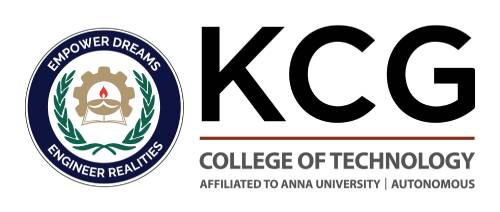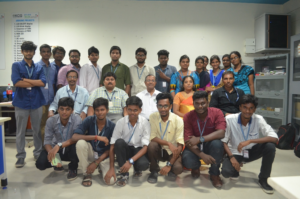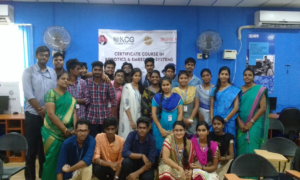CHENNAI
Project e-Yantra is an initiative to spread education in embedded systems and Robotics by IIT Bombay sponsored by Ministry of Human Resource Development through the National Mission on Education through ICT (NMEICT). The objective of e-Yantra is to provide hands-on learning to engineering students, creating the next generation of engineers in India with a practical outlook to take on challenging problems and provide solutions.
KCG College of Technology is a member of e-Yantra and has set up a state of the art laboratory under the e-Yantra Lab Set-up Initiative (eLSI).The KCG e-Yantra Robotics Lab trains students in embedded systems and micro-controller programming by engaging them through the Project Based Learning (PBL) mode.
The KCG e-Yantra Robotics Lab is offering a Certificate Course in Robotics & Embedded Systems. The course is of 14 hours duration (2 days). The registration fee is Rs 1650 per person.
The course for a batch of 24 students (ECE 3A) was conducted on 4 and 5August 2017. The 2 day course was conducted by Aida Jones (Asst. Professor, ECE), Renganayaki G (Assoc. Professor, ECE), S. Subash Chandra Bharathi (Asst. Professor, EEE), Feba Sosa Abraham (Asst. Professor, ECE) and Bhavani Bharathi G (Asst. Professor, EIE). The students were introduced to Embedded Systems and Robotics using the Firebird V robot which uses the Atmega 2560 as the master microcontroller and Atmel 8 as the slave. Programming the robot using Embedded C via the Atmel Studio 4 programming environment, compiling the program using WinAVR and downloading the program using AVR Bootloader were taught to the students.
Activity based learning was used to give the students a good grasp of theoretical aspects through practical work. Motion Control using I/O ports, robot velocity control using PWM, LCD and buzzer interfacing, Analog sensor interfacing using ADC, White line following robot, Interrupt Programming, Closed loop position control using position encoder were the various tasks undertaken by the students. The students used a variety of sensors and actuators for the tasks. The skill set targeted included Embedded C Programming skills, practical implementation skills, problem solving skills and team work.
The students were evaluated through a project assigned to teams of 4 students each on the last day. The project incorporated all the tasks they had undertaken.











